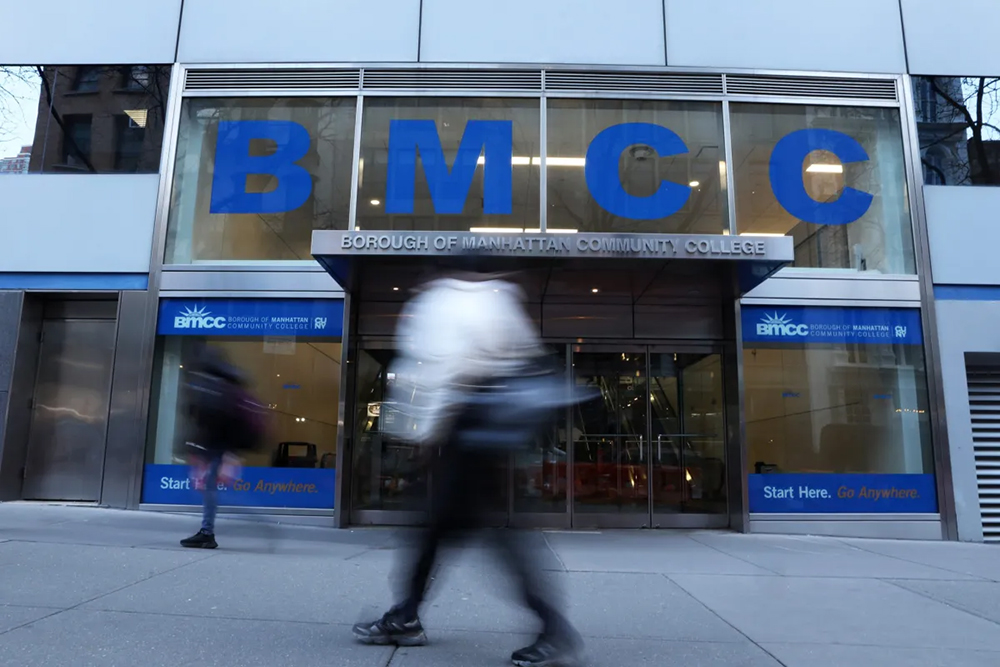|
Getting your Trinity Audio player ready...
|
The school is being careful in what it’s saying before the incoming president, who has promised mass deportations, begins his second term on Monday.
By: Jonathan Custodio
The City University of New York, which enrolls more than 16,000 students who aren’t citizens, is readying the community for potential immigration enforcement as President Donald Trump returns to the White House.
Staffers with the university’s Undocumented and Immigrant Student Programs initiative and its Citizenship Now! legal assistance program held a two-hour zoom session on Thursday evening to guide more than 500 participants through a gauntlet of information.
That included how student data is federally protected, how the CUNY community can be protected from Immigration and Customs Enforcement (ICE), and the border policies that Trump might enact in his coming term.
Nermeen Arastu, co-director of the Immigration & Non-Citizen Rights Clinic at the CUNY School of Law, said the session was meant to help participants know what to watch for in the coming years and start thinking through how to “fight back against some of these destructive policies.”
The question, Arastu continued, is “How are we, together, going to protect our communities, particularly in the CUNY system, our clients, our students?”
The guidance urges undocumented immigrants to make plans in case family members are arrested and detained. It encourages all immigrants to consult with qualified immigration law experts and ensure IDs, work permits, and tax records are easily accessible and updated.
Some 30% of CUNY’s roughly quarter-million students are foreign born, including about 4,000 who are undocumented, according to the university.
Participants on Thursday’s webinar posted more than 100 questions in the virtual chat, including about legal protections for electronic devices, deportation risks for those who have declared asylum, and ICE’s presence in New York City.
CUNY doesn’t and won’t share student records without a warrant, subpoena, or court order, and doesn’t track or document students’ immigration statuses, according to immigrant student FAQs on its website.
Since 2011, and continuing through the first Trump administration, ICE has considered colleges and universities to be “sensitive locations,” where immigration enforcement actions generally don’t occur outside of “extraordinary circumstances,” as the FAQ notes. Trump is reportedly planning to drop these protections.
Cynthia Carvajal, the director of Undocumented and Immigrant Student Programs, said at the beginning of the webinar that the university offices “will be providing as much information as we currently have available — resources, guidance.”
She went on: “But, as you know, there’s still a lot that we don’t know exactly what’s gonna happen.”
‘A Lot of Fear’
Janet Calvo, a professor specializing in immigration at CUNY School of Law, cautioned that it’s hard to say before Trump returns to power how his rhetoric will translate into policy. “There are a lot of things out there, a lot of negative things, that are being thrown out,” she said. “We don’t know which ones are going to come to fruition and not come to fruition.”
During the last Trump administration, she said, immigrants “were afraid to go to school. They were afraid to go to a hospital, or afraid to get health care. They were afraid to travel. They were afraid to go to work, even for those people who were in immigration statuses where they had clear permission.”
Alyshia Gálvez, an anthropologist and professor of Latin American studies at Lehman College, says that she’s sensed “a lot of fear” among students who aren’t willing to discuss sensitive immigration matters.





